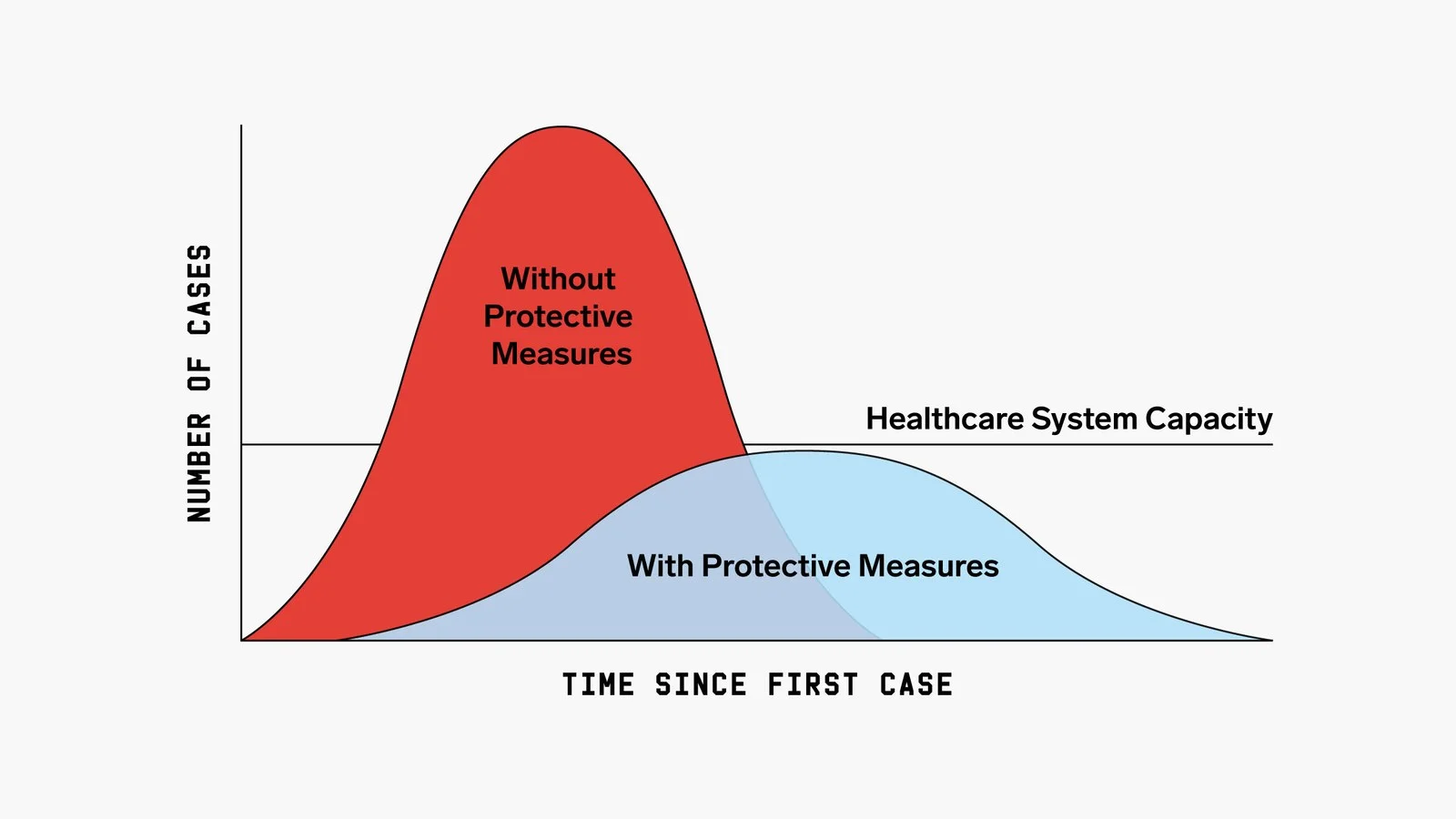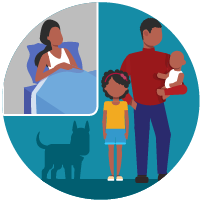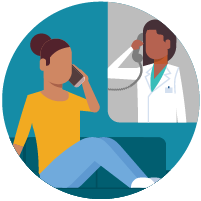Flatten the Curve! What You Need To Know
Here’s what you need to know to help “flatten the curve” of the COVID-19 outbreak. On January 22nd one case of the the novel Coronavirus, COVID-19, was diagnosed in the United States. After those initial reports of infection, reports of further infections began to trickle slowly. By February 1st, that number was up to 8 confirmed cases; by March 1st, the number was 76. But, now two months after the virus was initially confirmed in the U.S., we are no longer experiencing a trickle but a steady current of new COVID-19 cases. Because it is estimated that every person infected could possibly infect three others, it is important that we all do our part to prevent further spread.
Everyone is now talking about “flattening the curve.” What does that mean really?
You’ve heard all the experts say that we must “flatten the curve” of the growing virus. What does that really mean? Basically, the experts are talking about their concern over how fast the virus could spread. Recently, the number of confirmed cases has been doubling about every 3 days. It is that “exponential curve” that has experts worried. If the number of cases continues to double at such a fast pace, the math says there would be about a hundred million cases in the U.S. by May. So, to prevent that, we need to try to “flatten the curve” and not let it rise exponentially.
Experts are saying that we can’t totally prevent the spread of the virus but it’s possible to slow it down. Slowing down the curve is really just a matter of math. If we all try to practice “social distancing” by avoiding public places and limiting our movement, we can hopefully slow the progress of the virus throughout our communities.
Why Do We Need To Flatten The Curve?
It’s important that the U.S. and other countries strive to flatten the curve of new COVID-19 infections because health care systems around the world have limited capacity to handle illnesses. Already, the U.S. health care system has significant numbers of patients with heart disease, cancer, and other illnesses for whom treatment is imperative. If there is suddenly an influx of new patients, our health care system may be stretched to the breaking point. Add to that the fact that COVID-19 is an incredibly contagious virus, and now you are potentially infecting patients who are in the hospitals for other illnesses.
So What Can YOU Do To Flatten The Curve?
Now that you understand the problem, there are some things we all can do to help flatten the curve. The United States and other countries have taken certain steps to restrict large gatherings and encourage people to limit their contact with others. Social distancing is hard and will likely negatively impact many people. However, social distancing in addition to proper hand washing are incredibly important to flattening the exponential curve.
- Stay home: People who are mildly ill with COVID-19 are able to recover at home. Do not leave, except to get medical care. Do not visit public areas.
- Stay in touch with your doctor. Call before you get medical care. Be sure to get care if you feel worse or you think it is an emergency.
- Avoid public transportation: Avoid using public transportation, ride-sharing, or taxis.
- Stay away from others: As much as possible, you should stay in a specific “sick room” and away from other people in your home. Use a separate bathroom, if available.
- Limit contact with pets & animals: You should restrict contact with pets and other animals, just like you would around other people.
- Although there have not been reports of pets or other animals becoming sick with COVID-19, it is still recommended that people with the virus limit contact with animals until more information is known.
- When possible, have another member of your household care for your animals while you are sick with COVID-19. If you must care for your pet or be around animals while you are sick, wash your hands before and after you interact with them. See COVID-19 and Animals for more information.
- Call ahead: If you have a medical appointment, call your doctor’s office or emergency department, and tell them you have or may have COVID-19. This will help the office protect themselves and other patients.
Ritchie Law Firm is a personal injury law firm devoted to helping individuals who have suffered serious and catastrophic injuries or lost a loved one as a result of someone else’s negligence. Ritchie Law Firm serves all of Virginia, while helping clients in cities and surrounding areas of Harrisonburg, Charlottesville, Staunton, and Winchester also serves clients in West Virginia, including Martinsburg, WV



